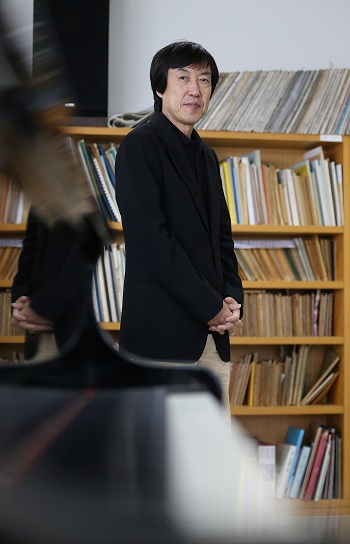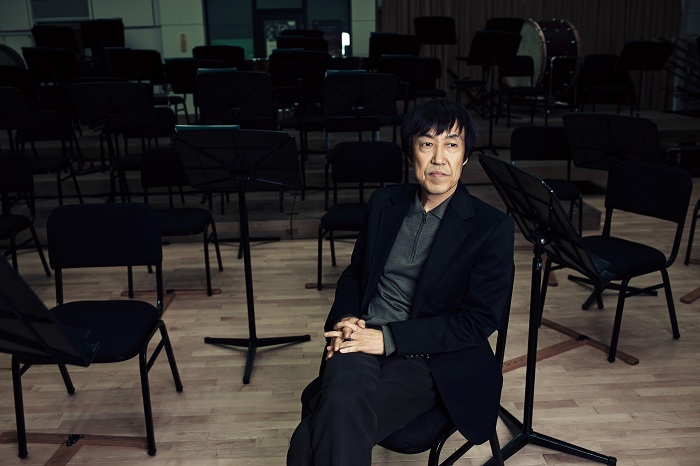Conductor Lim Hun-Joung challenges himself to a new interpretation of the Mahler Production.
 Gustav Mahler was perhaps one of the many entrapped in the Curse of Symphony No. 9. Indeed, there have been a number of composers who died after or in the midst of composing Symphony No. 9. Schubert and Bruckner weren't able to finish that symphony. Beethoven and Dvorak did manage to complete it, but it happened to be the last production of their lives.
Gustav Mahler was perhaps one of the many entrapped in the Curse of Symphony No. 9. Indeed, there have been a number of composers who died after or in the midst of composing Symphony No. 9. Schubert and Bruckner weren't able to finish that symphony. Beethoven and Dvorak did manage to complete it, but it happened to be the last production of their lives.
During the period that Mahler was composing the No. 9, he was also suffering from severe heart disease. He finally passed away about two years after finishing the symphony, produced under the title "Das Lied von der Erde," or The Song of the Earth. That fact probably helps make the audience feel grief and a mournful sadness as they listen to the melody.
However, if you hear that piece, you will realize that while it is difficult to understand, it is very meaningful. In the past, most reviews about Symphony No. 9 tended to put too much emphasis on the death, and failed to notice how modern and innovative the work was. If you take a careful look at Symphony No. 9, you will see how it breaks the traditional format of symphony, but still maintains the characteristics of the genre.
The first movement can serve as a good example. Compared to the first movement of other symphonies, it begins with a looser form and syncopated motif.
The shifts of majors that appear in the middle of the song help the audience feel a sense of instability and even tension. After the first movement, which is complicated and full of breathtaking virtuosity, the second movement unfolds. Of course, this movement is not of the traditionally elegant kind, but rather, wacky and a bit over exaggerated. The third movement is filled with satire and derision, mixed with beautiful melodies. The fourth and final movement wraps up with sad tunes, as if all satire has been purified.
Conductor Lim Hun-Joung appears to have put his whole heart and soul into Mahler's pieces during his life. Now, Lim is ready to conduct the Mahler No. 9, considered to be one of Mahler's most difficult.
Between 1996 and 2004, Lim has come up with his own interpretation of the whole Mahler collection, becoming the first Korean to do so and causing a sensation.

Today, in partnership with the Korean Symphony Orchestra, Lim Hun-Joung plans to bring "Mahler Fever" to the Seoul Arts Center on July 19 in what is certain to be an outstanding production of Symphony No. 9.
The upcoming concert came under the spotlight of classical music lovers. They anticipate a wonderful scenario of the kind that only the collaboration of Lim and the Korean Symphony could create, with Mahler's last Symphony No. 9 that requires deep insights and fresh interpretation.
More information about the orchestra will be available at the link below:
http://www.koreansymphony.com/store/concert/regularly_concert_eng.php?concert_no=356
By Lee Jeong-rok, Lee Seung-ah
Korea.net Staff Writers
jeongrok@korea.kr


During the period that Mahler was composing the No. 9, he was also suffering from severe heart disease. He finally passed away about two years after finishing the symphony, produced under the title "Das Lied von der Erde," or The Song of the Earth. That fact probably helps make the audience feel grief and a mournful sadness as they listen to the melody.
However, if you hear that piece, you will realize that while it is difficult to understand, it is very meaningful. In the past, most reviews about Symphony No. 9 tended to put too much emphasis on the death, and failed to notice how modern and innovative the work was. If you take a careful look at Symphony No. 9, you will see how it breaks the traditional format of symphony, but still maintains the characteristics of the genre.
The first movement can serve as a good example. Compared to the first movement of other symphonies, it begins with a looser form and syncopated motif.
The shifts of majors that appear in the middle of the song help the audience feel a sense of instability and even tension. After the first movement, which is complicated and full of breathtaking virtuosity, the second movement unfolds. Of course, this movement is not of the traditionally elegant kind, but rather, wacky and a bit over exaggerated. The third movement is filled with satire and derision, mixed with beautiful melodies. The fourth and final movement wraps up with sad tunes, as if all satire has been purified.
Conductor Lim Hun-Joung appears to have put his whole heart and soul into Mahler's pieces during his life. Now, Lim is ready to conduct the Mahler No. 9, considered to be one of Mahler's most difficult.
Between 1996 and 2004, Lim has come up with his own interpretation of the whole Mahler collection, becoming the first Korean to do so and causing a sensation.

Conductor Lim Hun-Joung causes what's called Mahler Syndrome in Korea.
Today, in partnership with the Korean Symphony Orchestra, Lim Hun-Joung plans to bring "Mahler Fever" to the Seoul Arts Center on July 19 in what is certain to be an outstanding production of Symphony No. 9.
The upcoming concert came under the spotlight of classical music lovers. They anticipate a wonderful scenario of the kind that only the collaboration of Lim and the Korean Symphony could create, with Mahler's last Symphony No. 9 that requires deep insights and fresh interpretation.
More information about the orchestra will be available at the link below:
http://www.koreansymphony.com/store/concert/regularly_concert_eng.php?concert_no=356
By Lee Jeong-rok, Lee Seung-ah
Korea.net Staff Writers
jeongrok@korea.kr

A poster for the 192nd Korean Symphony Orchestra. This time, the orchestra showcases the Symphony No. 9 together with Conductor Hun-Joung Lim.
